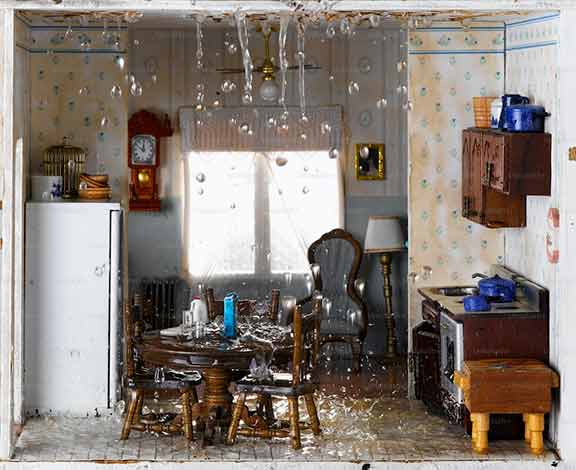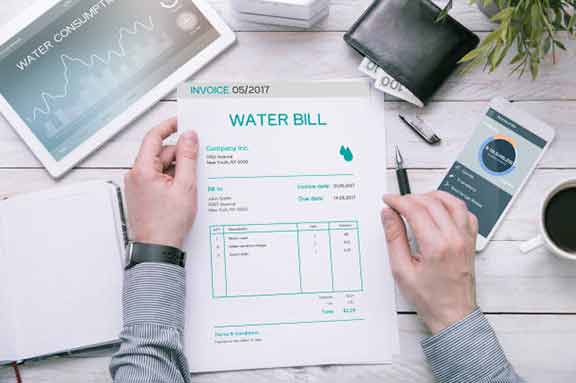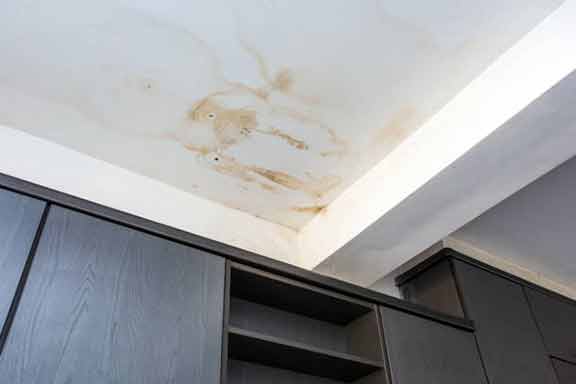
Water leaks can lead to significant damage to your home if left undetected. They can cause structural issues, promote the growth of mold and mildew, and increase your water bills. As a homeowner, it is crucial to stay vigilant and be proactive in detecting water leaks to prevent these problems. In this article, we will provide you with effective water leak detection advice to help you identify and address leaks in a timely manner.
Understanding Water Leaks
Before we delve into the details of water leak detection, it is important to familiarize yourself with some common causes of leaks in a residential setting. By understanding the potential sources, you can proactively address these issues and minimize the risk of water damage.
1. Plumbing System: Faulty plumbing pipes, joints, or fixtures can develop leaks over time due to wear and tear or improper installation.
2. Appliances: Home appliances such as washing machines, dishwashers, and refrigerators with ice makers can develop leaks if not properly maintained or if their hoses and connections become damaged.
3. Roofing: Damaged or deteriorated roof shingles, flashing, or gutters can allow water to seep into your home.
4. Foundation: Cracks or gaps in your home’s foundation can lead to basement water intrusion emergencies, especially during heavy rains or flooding.

If you notice a sudden spike in your water bills without any plausible explanation, it could be a sign of an undetected water leak.
Signs of Water Leaks
Early detection of water leaks can save you from expensive repairs and water damage. Here are some signs that may indicate the presence of a water leak:
1. Unexplained Increase in Water Bills: If you notice a sudden spike in your water bills without any plausible explanation, it could be a sign of an undetected water leak.
2. Musty Odor: A persistent musty smell, especially in areas like your basement or bathroom, could indicate the presence of mold or mildew caused by hidden water leaks.
3. Water Stains: Discoloration or water stains on ceilings, walls, or floors may suggest an underlying water leak.
4. Damp or Wet Spots: If you consistently find damp or wet spots in seemingly dry areas of your home, there may be a hidden water leak.
5. Reduced Water Pressure: A sudden decrease in water pressure throughout your home can be caused by a leak in the plumbing system.
6. Sounds of Running Water: If you can hear the sound of running water even when all faucets and appliances are turned off, there might be a hidden leak.
Water Leak Detection Methods
Now that you are aware of the common causes and signs of water leaks, let’s explore effective water leak detection methods:
Visual Inspection
Performing regular visual inspections of your home can help you identify visible signs of water leaks. Here’s what you should look for:
- Check for any visible water stains or discoloration on ceilings, walls, or floors.
- Inspect your plumbing fixtures, such as faucets, showers, and toilets, for any signs of leakage.
- Examine your appliances, including washing machines, dishwashers, and water heaters, for any visible leaks or dampness around them.
- Closely examine your roof and gutters for any damage or missing shingles that could potentially cause water leaks.
- Inspect your basement and crawl spaces for any signs of water intrusion, such as puddles or dampness.

A water meter reading is an effective way to determine if there is a hidden water leak in your home.
Water Meter Reading
A water meter reading is an effective way to determine if there is a hidden water leak in your home. Follow these steps:
- Ensure that all water-consuming appliances and fixtures, such as faucets, showers, and irrigation systems, are turned off.
- Locate your water meter and record the current reading.
- Avoid using any water for a few hours, preferably overnight.
- Check the water meter again after this period. If the reading has changed, it indicates a potential water leak.
Dye Test
A dye test is a simple yet effective method to check for leaks in your toilet tank. Follow these steps:
- Add a few drops of food coloring to the toilet tank.
- Avoid flushing the toilet for at least 30 minutes.
- If the water in the bowl changes color, it indicates that water is leaking from the tank into the bowl.
- Be sure to flush the toilet after the test to avoid staining.
Water Leak Detection Devices
Several advanced water leak detection devices are available on the market. These devices can help you identify leaks and even send alerts to your smartphone. Here are some popular options:
- Water Leak Detectors: These devices can be placed near potential leak sources, such as appliances, sinks, or plumbing fixtures. They detect water accumulation and trigger an alarm when a leak is detected.
- Automatic Shut-off Valves: These valves can be installed on your main water line. They automatically shut off the water supply to your home if a leak is detected.
- Smart Water Monitors: These devices monitor your water usage and provide real-time alerts for abnormal consumption or potential leaks. Some even offer remote shut-off capabilities.

For major water leaks or those that require specialized attention, it is best to call a professional plumber.
Addressing Water Leaks
If you have detected a water leak in your home, it is essential to address it promptly to prevent further damage. Here are some steps you can take:
Small Plumbing Leaks
If you have identified a small plumbing leak, such as a dripping faucet or a minor pipe joint leak, you may attempt to fix it yourself if you have basic plumbing knowledge. Here’s what you can do:
- Turn off the water supply to the affected fixture or area to avoid further leakage.
- Use plumbing tape or a pipe sealant to repair minor leaks or loose fittings.
- If needed, replace faulty washers or gaskets in faucets or valves.
- Inspect the repaired area to ensure the leak has stopped.
Major Water Leaks
For major water leaks or those that require specialized attention, it is best to call a professional plumber. They have the necessary expertise and equipment to address complex water leak issues. A professional plumber can:
- Perform a thorough inspection to identify the source of the leak.
- Repair or replace damaged pipes, fixtures, or appliances.
- Ensure that the repaired area is properly sealed and secured to prevent future leaks.
- Provide recommendations for preventive measures to avoid future water leak incidents.
Preventive Measures
Prevention is always better than cure, and this holds true for water leaks as well. Here are some preventive measures you can take to minimize the risk of water leaks in your home:
- Regularly inspect your plumbing system for signs of wear and tear, and address any issues promptly.
- Monitor your water bills to notice any unexplained spikes that may indicate a leak.
- Maintain your appliances and perform routine checks on their hoses and connections.
- Clean and unclog your gutters regularly to prevent water buildup on your roof.
- Ensure proper drainage around your home’s foundation and basement area.
- Consider installing a whole-house water leak detection system for added protection.
Conclusion
Water leaks can cause extensive damage to your home if not detected and addressed in a timely manner. By familiarizing yourself with the common causes, signs, and effective detection methods mentioned in this article, you can proactively identify leaks and take the necessary steps to prevent further damage. Remember, regular inspections and preventive measures are key to maintaining a leak-free home. If you encounter a significant water leak, don’t hesitate to seek professional help to ensure that the issue is resolved correctly. Stay vigilant, and protect your home from the devastating effects of water leaks.